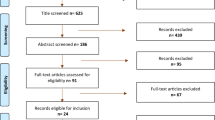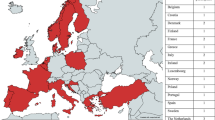Abstract
We are reporting on how involved the mentor was in promoting responsible research in cases of research misconduct. We reviewed the USPHS misconduct files of the Office of Research Integrity. These files are created by Institutions who prosecute a case of possible research misconduct; ORI has oversight review of these investigations. We explored the role of the mentor in the cases of trainee research misconduct on three specific behaviors that we believe mentors should perform with their trainee: (1) review source data, (2) teach specific research standards and (3) minimize stressful work situations. We found that almost three quarters of the mentors had not reviewed the source data and two thirds had not set standards. These two behaviors are positively correlated. We did not see convincing evidence in the records that mentors were causing stress, but it was apparent in the convicted trainees’ confessions that over 50% experienced some kind of stress. Secondary data, while not created for this research purpose, allows us to look at concrete research behaviors that are otherwise not very researchable. We believe it is important for mentors and institutions to devote more attention to teaching mentors about the process of education and their responsibilities in educating the next generation of scientists. This becomes a critical issue for large research groups who need to determine who is in charge educating, supervising and assuring data integrity.
Similar content being viewed by others
References
Greenberg Daniel, S. (1983). How scientists get away with cheating. Journal of Commerce and Commercial, (357), 4A.
Judson, H. F. (2004). The great betrayal (pp. 112–122, 144–146). New York: Harcourt, Inc.
Wallis, C. (1983). Fraud in a Harvard Lab. Time, 121(Feb 28), 49.
Columbia University, (n.d.). RCR: Research misconduct. 3. John Darsee and Robert Slutsky. http://ccnmtl.Columbia.edu/projects/rcr/rcr_misconduct/foundation/index.html.#1_B_3. Accessed 15 Apr 2008.
Murray, M. (1987). A long-disputed paper goes to press. Science News, 131, 52. doi:10.2307/3971418.
Federal Register notices are posted when a case of misconduct occurs. The following cases are considered major by ORI: Rosner (NIH, 1992), Tracy (University of Southern California, 2002), Muenchen (University of Michigan, 2002), Simmons (University of Texas Southwest Medical Campus, 2000), Lin (Medical University of South Carolina, 2001), and Hajra (University of Michigan, 1997). These can be found at http://ori.dhhs.gov/. Accessed 8 June 2008.
National Academy of Sciences. (2002). Scientific research: Creating an environment that promotes responsible conduct. Washington: National Academy Press.
Webb, E. J., Campbell, D. T., Schwartz, R. D., & Sechrest, L. (2000). Unobtrusive measures; revised edition. Sage Publications Inc.
Rodbard, D. Survey of research integrity measures utilized in biomedical research laboratories, report prepared for ORI, 2003. http://ori.dhhs.gov/documents/research/intergity_measures_final_report_11_07_03.pdf. Accessed 8 June 2008.
Martinson, B. C., Anderson, M. S., & Devries, R. (2005). Scientists behaving badly. Nature, 435(7043), 737–738. doi:10.1038/435737a.
Anderson, M. S., Horn, A. S., Risbey, K. R., Ronning, E. A., De Vries, R., & Martinson, B. C. (2007). What do mentoring and training in the responsible conduct of research have to do with scientists’ misbehavior? Findings from a national survey of NIH-funded scientists. Academic Medicine, 82(9), 853–860. doi:10.1097/ACM.0b013e31812f764c.
Adams, D., & Pimple, K. D. (2005). Research misconduct and crime lessons from criminal science on preventing misconduct and promoting integrity. Accountability in Research, 12, 225–240. doi:10.1080/08989620500217495.
National Academy of Sciences. (1989, 1995 2nd ed.). Responsible conduct of research: On being a scientist. Washington: National Academy Press.
Acknowledgements
We would like to thank the following colleagues for reading and commenting on earlier versions of this paper: Prof. Douglas Adams, University of Arkansas; Dean Karen Klomparens, Michigan State University; Dr. Larry Rhoades, ORI.
Author information
Authors and Affiliations
Corresponding author
Additional information
The views expressed herein represent those of the authors and do not necessarily represent the views of Michigan State University or the position of the Office of Research Integrity (ORI), the Department of Health and Human Services, or any component therein.
Rights and permissions
About this article
Cite this article
Wright, D.E., Titus, S.L. & Cornelison, J.B. Mentoring and Research Misconduct: An Analysis of Research Mentoring in Closed ORI Cases. Sci Eng Ethics 14, 323–336 (2008). https://doi.org/10.1007/s11948-008-9074-5
Received:
Accepted:
Published:
Issue Date:
DOI: https://doi.org/10.1007/s11948-008-9074-5




